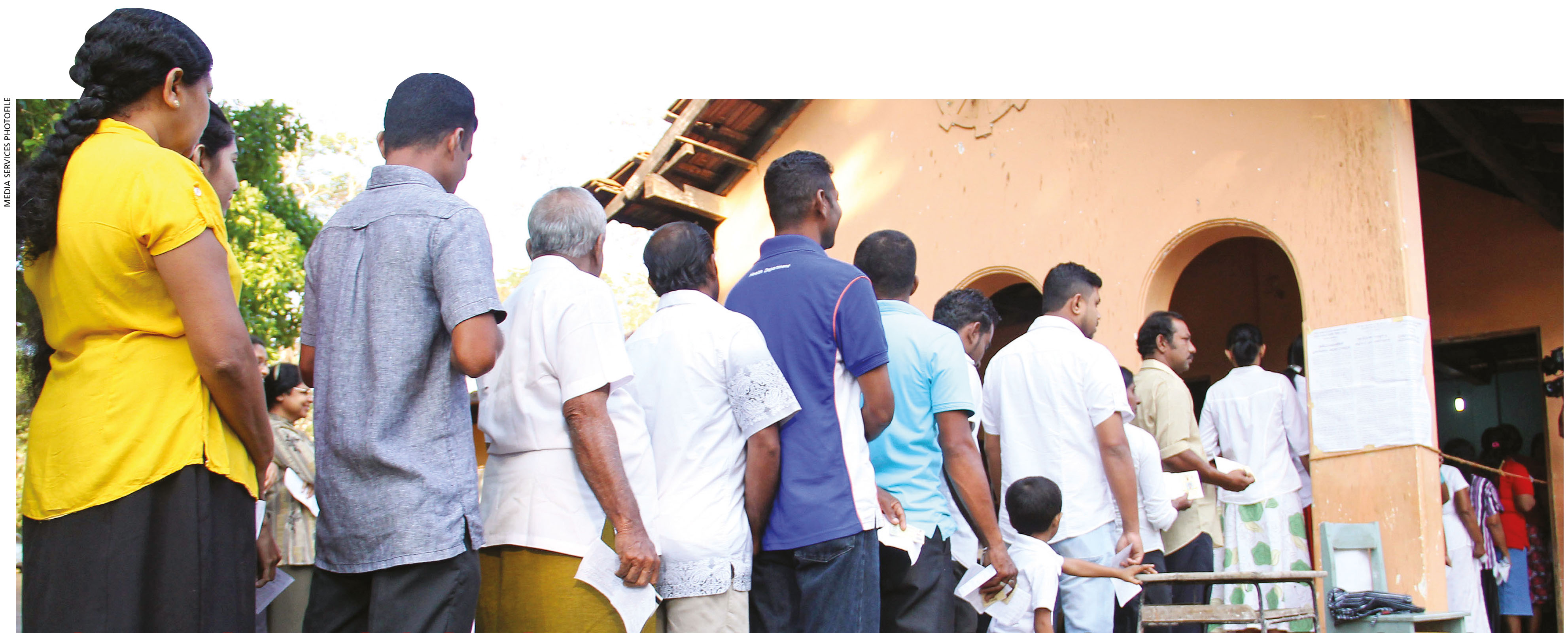STATE OF THE NATION
POLITICAL COSTS AND THE OPPORTUNITIES LOST
Wijith DeChickera is ready to consign ashes to ashes and dust to dust – as far as new political cultures and opportunities lost in modern-day Sri Lanka are concerned

By the time you read this, another costly election would be done and dusted. Over the losers, no lament is raised by savvier segments of the electorate that their favourites bit the dust. When the dust settles, it’s evident between one party and another that there isn’t an iota of a difference in principle much less policy.
For instance, how many erstwhile contenders who stood for public office are to do the spadework in private championing women’s rights when it’s not the popular thing to do?
Ban women from buying booze in taverns? (Check) Impose sanctions on abortion but neglect meaningful legislation against rape, incest, marital abuse, child prostitution? (Strike one) Address burning issues to ameliorate working conditions in plantations and garment factories where workforces are predominantly female, safeguard the health of underground sex workers, protect women employed overseas by legal and diplomatic means? (Let’s get real, the election is over)
Polls in our island nation are a pragmatic waste of time for polities desirous of paradigm shifts. Paradoxically, they have a tripartite ounce of utility.
Firstly, local government elections test the temperature of the water for national leaders who interpret micro outcomes as endorsements of their macro policies.
Secondly, they reassure the public – at great expense to state coffers – that the voice of the people is still being heard, that there’s hope the voices of our political gods will echo common aspirations voiced on sundry platforms but forgotten no sooner polls are over.
Last but not least, these send out strong signals to world watchers with vested interests that democracy is alive in our dinky republic so that sovereign nations or global institutions can bankroll growth, development and progress, to the benefit of all and sundry (Read, the world economic power balance).
With that said, less naive unsentimental observers among us can afford to be more cynical. We have heard myriad promises made but seen scant genuine transformation on the ground. Worse still, unsophisticated polities continue to swallow political propaganda. Hardest to digest perhaps are the Machiavellian manipulations discerned by those with insight.
For example, consider this scenario…
The leadership of the green party found itself under pressure over its culpability in the bond issue. It strategically proposed legislation on alcohol that would cause its alliance partner to respond with hidebound patriarchy. A president still powerful despite the constraints of 19A reacted predictably with a gazette reversal that earned him the ire of liberals in the city. Attention was diverted from the PRECIFAC report as a result of the prez’s ostensible chauvinism and the outcry that ensued.
It is simply one link in a long chain of events where political magicians work small wonders with smoke and mirrors for the pleasure and perpetuity in power of the incumbents. Some would argue that all senior coalition leaders are complicit in manufacturing spectacles like these – bar closing and bra throwing among other imbroglios included – to take a worried polity’s mind off more pressing matters such as death and taxes.
Be the truth as it may, behind the scenes the nature of our political beast remains intact. And civil society is ever a sucker for patronage politics. We still invite motley politicos to ‘grace’ our formal functions when it is evident that these individuals are more bent on disgracing themselves, and their once noble office in the house and elsewhere.
If national leaders were savvier, I’d argue that we let MPs and minsters be as pathetic as they are while statesmen and women get on with the daunting task of transforming the face of our society through a new political culture. But even premier leaders fall short of the strategy of which we once thought them capable (leave alone campaign financing being high crime).
There are a plethora of examples to prove government’s folly in undermining its own reform agenda.
A case in point is the prime minister’s persecution of senior bureaucrats under the previous regime who demonstrably erred but only under egregious pressure from their then bosses. To hand out stiff sentences to these bureaucratic backbenchers while their former political masters remain at large is obscene and counterproductive. It has alienated many ministries and departments as regards the reformist agenda.
There are times when I wonder if in the best national interest, it is better to change our bureaucrats themselves from time to time but let political representatives remain in situ for longer once elected.
Then commonsense shakes me when I take a closer look at what the voting cat dragged in through the backward front door we call ‘democracy.’ It reminds me that like pampers, political leaderships at every level need to be changed regularly to keep us all fresh, dry and smelling like a proverbial lotus flower.
And whatever we lose in the process of changing the guard can be considered detritus, which – though it is good to flush away altogether – is lamentably allowed to remain on tap until recycling time at the polls to come…






Leave a comment